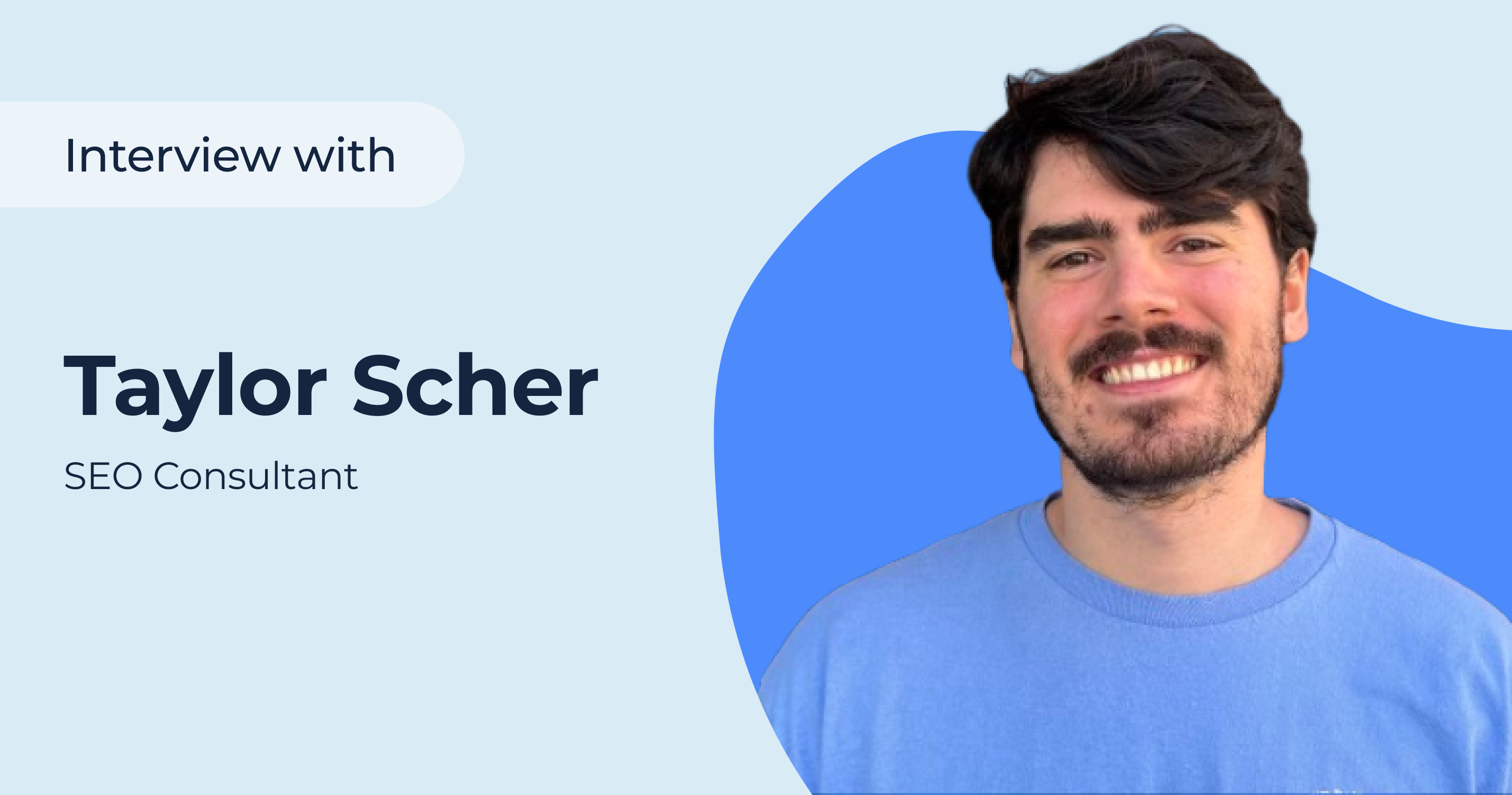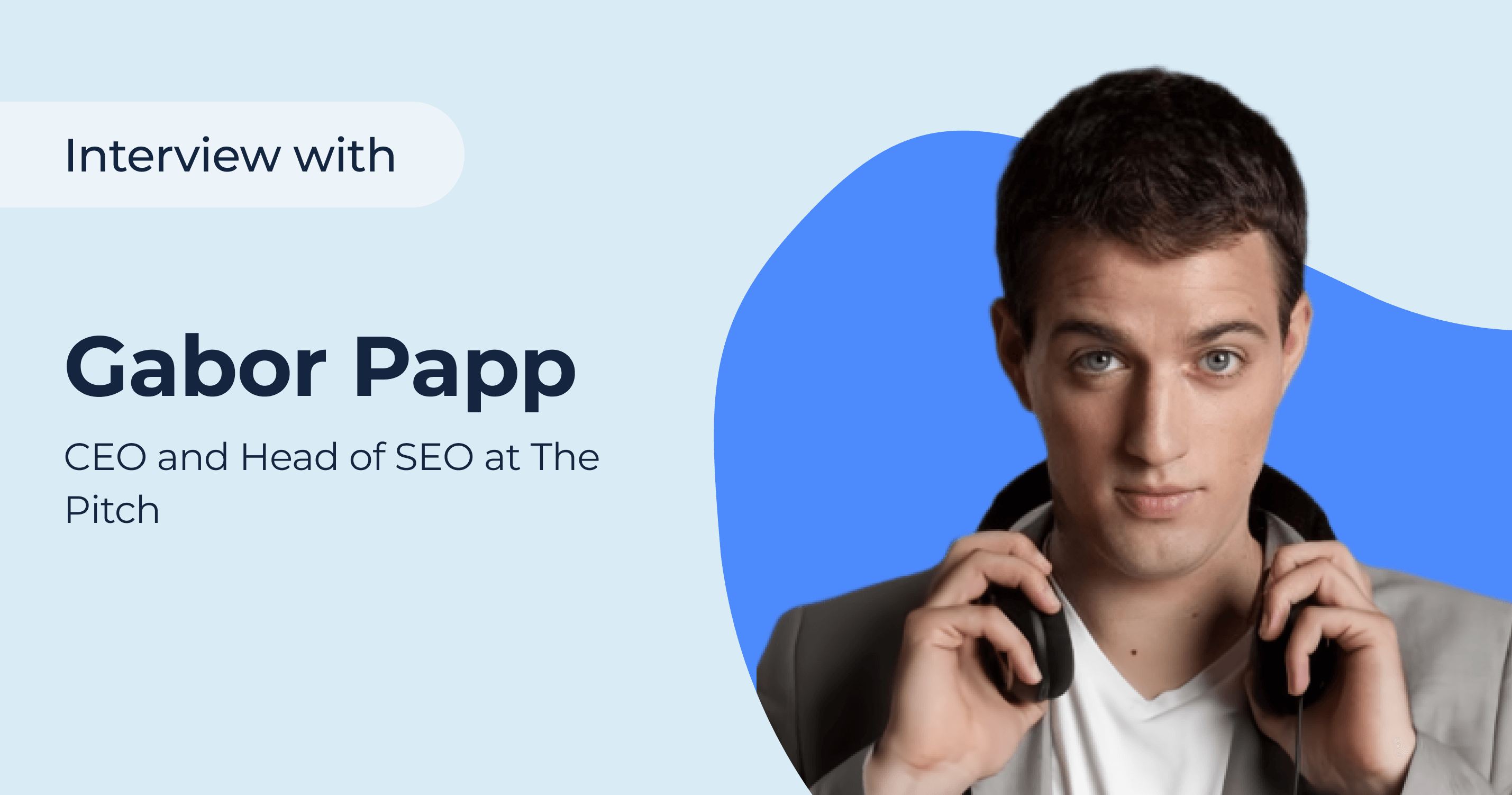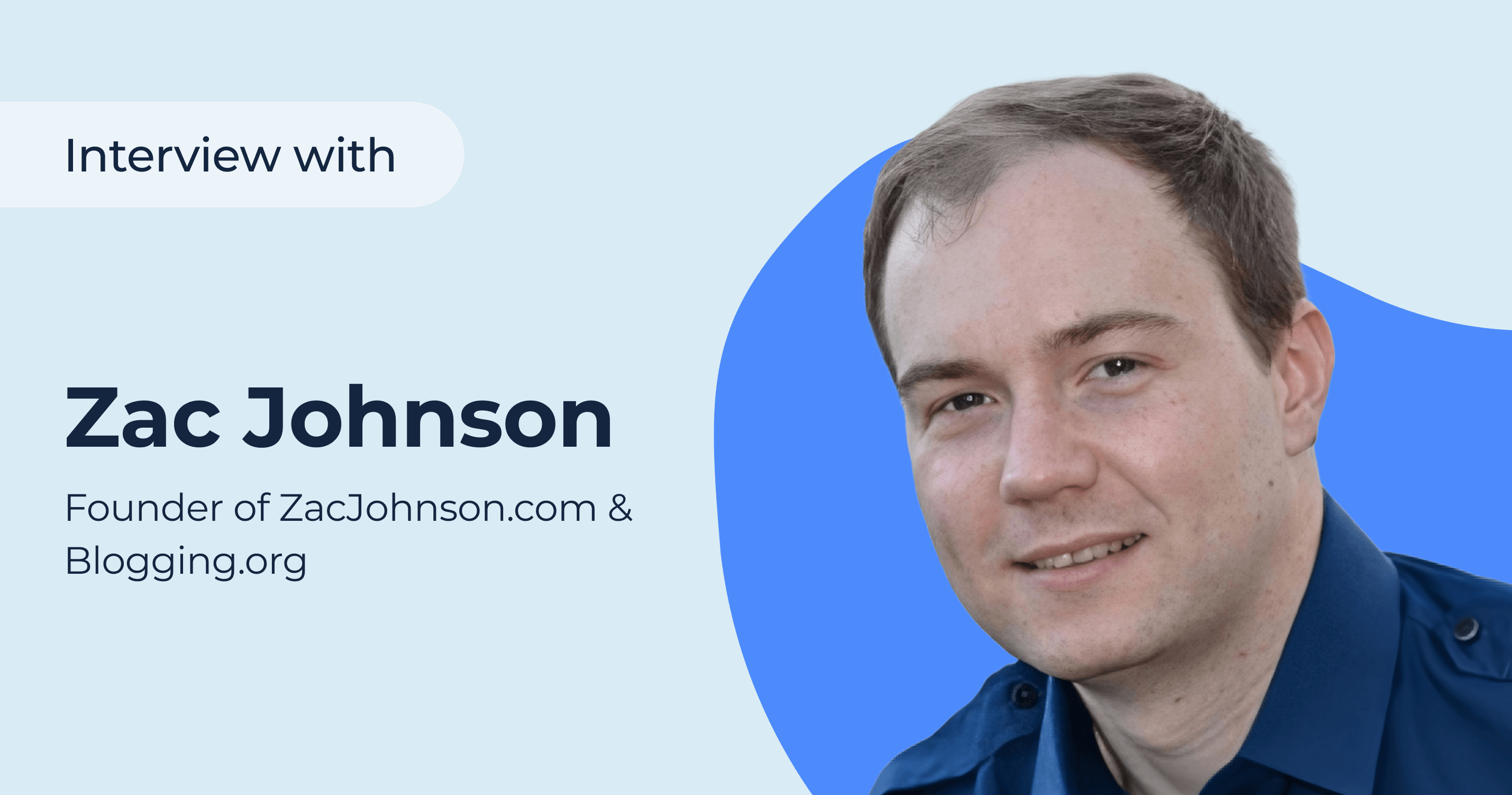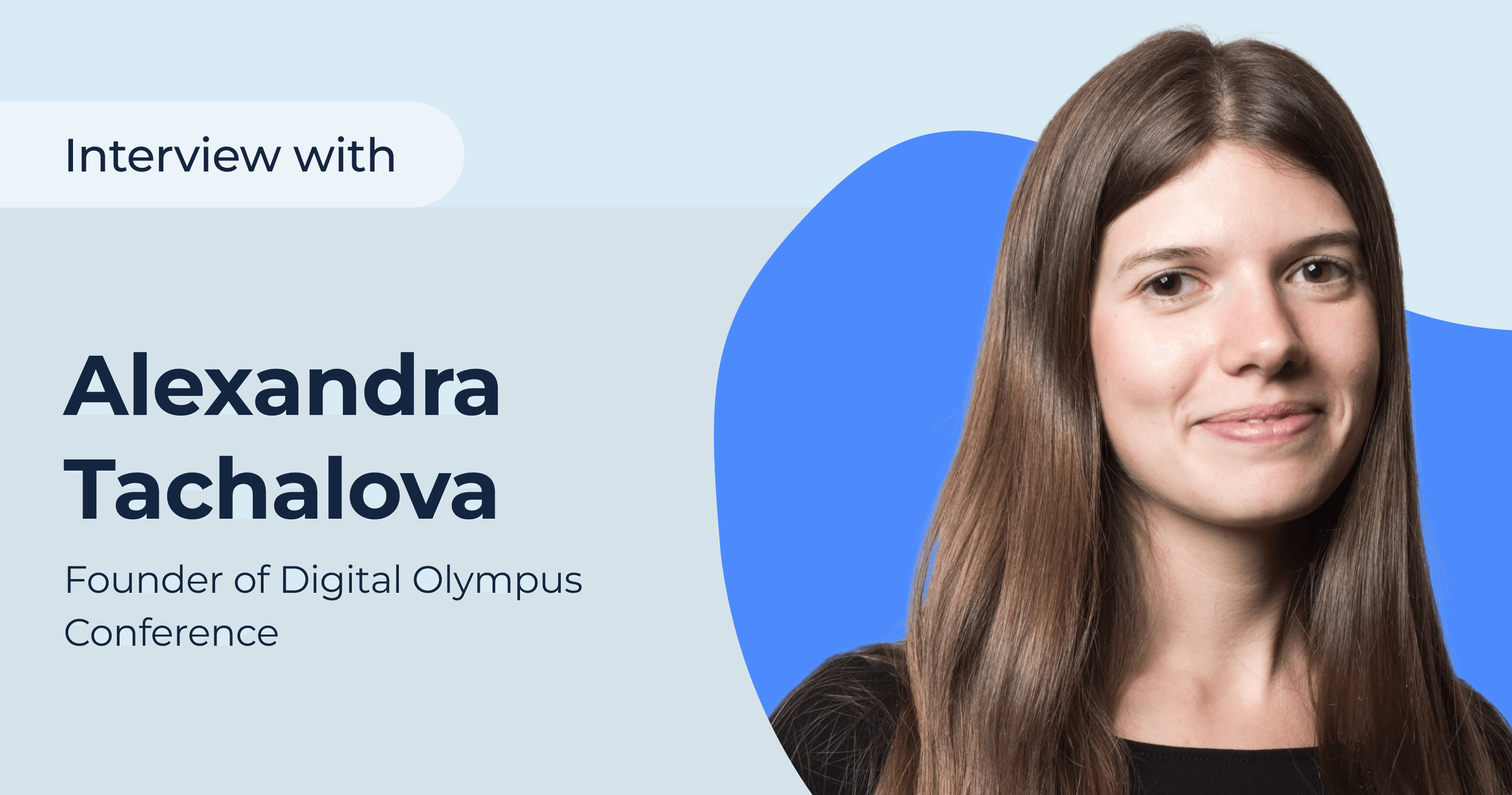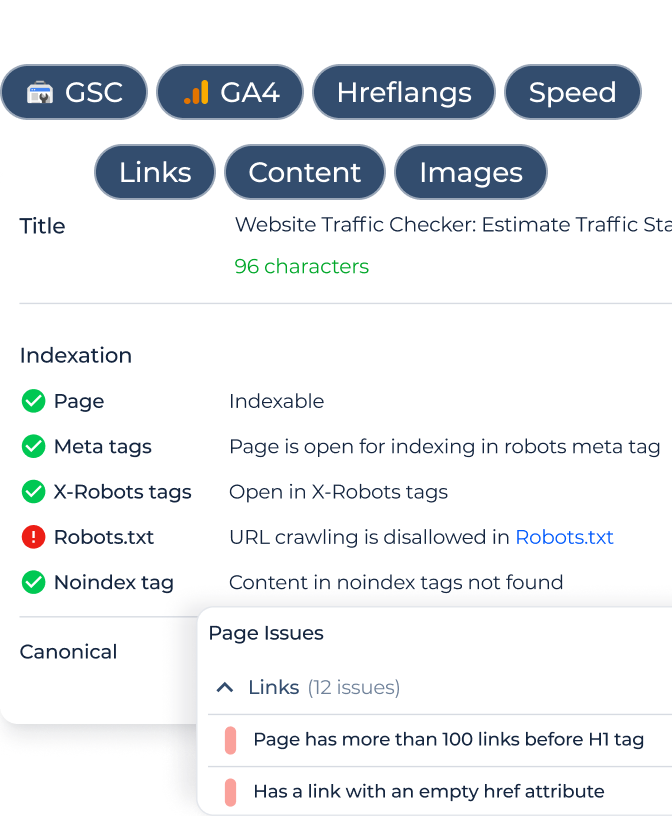In this interview, Taylor Joseph Scher discusses his transition from agency work to becoming a successful SEO consultant for B2B SaaS companies. He shares how a challenging job market led him to consultancy, the unique aspects of SaaS SEO, and the importance of a holistic marketing approach.
Taylor also highlights common SEO pitfalls, evolving B2B strategies, and the benefits of building a personal brand. His journey emphasizes the importance of strategic client relationships and work-life balance.
1. You worked in agencies for 3 years and decided to become an SEO consultant. What prompted you to make this decision?
So this one is actually kind of a funny story. I really didn’t intend on becoming a consultant.
My situation at my last agency was a little complicated, so it ended up resulting in us going our separate ways. I think this was November 2023.
At the time, the job market was absolutely terrible, it might still be terrible, but it was especially terrible around then. I was applying to pretty much every position I could find with no luck.
I had a few clients under my belt at the time, so I at least had some income to support me.
As I kept looking for jobs, I kept having clients reach out to me about services.
Clients finding me through my website, my LinkedIn, and even sometimes random Reddit conversations.
It got to the point where my income started to match what I was making at my previous agency and I decided to keep going down this road.
Little did I know that it was the best decision I ever made.
My biggest mission statement for myself is to create a stable stream of work while having enough time for my passion activities outside of work.
I’ve seen cases where agency owners were overworking themselves and neglecting their family just to get work done.
I think from seeing that first hand, it almost gave me PTSD and made me decide to do the exact opposite of that.
2. Weren’t you worried that you didn’t have enough experience for a solo career yet?
Honestly not really.
Having been in the industry for a while, I’ve seen all types of incompetence.
I’ve seen people with 10+ years of experience recommending we update meta descriptions and meta keywords to help improve rankings.
And I’ve seen newcomers rank a new domain in less than 30 days.
I think experience definitely matters when it comes to the operational side of things (like molding yourself into a process or understanding what works/doesn’t work) but I think overall, it really depends on your curiosity and how much you want to learn.
I have ADHD (both hyperactive and impulsive), so I basically absorb any information about a topic that I find interesting.
As it happens, I find SEO to be really interesting and also like that it’s always ever evolving (I know most people hate this). I like something that challenges me and doesn’t have a ceiling in terms of what you can learn.
Because of this, my brain is like a massive storage base of all things SEO, so if people bring me on for consulting, it’s pretty easy to bring out recommendations for them.
I sometimes can info dump people on SEO and marketing in general, so consulting actually works out pretty well for me.
I’ve also found that I struggle in places where I don’t have full control (this is a huge ADHD thing), so it also works well when I can control all aspects of what I do. Like execution, communication, and strategy.
3. Why did you decide to focus on servicing B2B SaaS businesses?
So this will tie in a bit with the previous point, but I honestly love how every SaaS campaign is unique.
It’s not like local SEO where you’re constantly building out generic landing pages.
“Roofer in X,” “Law Firm in Y.”
It was just the same thing over and over again and it was honestly just boring.
With SaaS companies, I feel like there’s a genuine unique challenge for every company I work with.
A content strategy for a privacy compliance software is going to be entirely different from an employee productivity tool.
I also like how integrated most SEO approaches are.
With local or sometimes ecom, the research phase is basically finding you through organic and maybe taking that next step.
With B2B, there is so much more that’s involved with the buying process where it isn’t just: I found you through organic > now I’ll convert.
A B2B buyer will likely look at your content > read your case studies > look at your pricing info > check out social > maybe be nurtured through email > do additional searches around commercial intent keywords.
Basically, it is way more involved and I think I like that challenge of helping companies outside of just SEO.
SEO is the main service I advise on, but I do try to consult on other channels whenever there’s an opportunity.
4. What do you see as the main differences between making SEO for B2B SaaS sites and other types of sites (e-commerce, local, media, etc.)
I think the biggest difference here is the journey users have to take before making a purchasing decision..
With local, usually it’s pretty easy as them finding you through search and converting.
Same with ecommerce if you’re looking for a specific product.
For B2B SaaS, there’s way more involvement in how they research your product.
They’ll look at:
- Your pricing
- Your case studies
- Your reviews
- Your other content
- Your competitors
- Your products features
There’s way more research that goes into your product, so you can’t rely on creating content and hoping it works.
You have to be a bit more strategic with what you go after.
I’m an SEO at heart, but I do try to advise on other marketing channels just so they can get more bang for their buck.
Example: my one client is creating these awesome YouTube videos, but never does anything with them outside of posting them on YouTube. I suggested they should take their YouTube videos and create shorts out of them and post them on LinkedIn (since a majority of their audience is on LI). They can also take their popular YouTube content and turn them into articles.
So I think in the case of a B2B SaaS, you don’t have the luxury of seeing SEO as a siloed channel. You have to envision the full journey and different touchpoints where you can engage your audience.
And BoFu from SEO really is the end funnel for all marketing channels.
After every touchpoint I’ve gone through, I’ve boiled my options down to 2 products. I now want to see which of those 2 products will be the better value for me. That’s when I’ll search “company vs company” as that end search.
I think that’s personally the best way to see SEO. As a channel that can capture leads from all of your different channels vs being a channel that only works for itself.
5. What has changed in SEO for B2B SaaS sites for the last few years?
I’d say competition honestly.
As more players enter the market, it’s becoming harder for SEO to work in a silo.
Companies have to consider other channels if they want SEO to work.
It’s unlikely for a lead to find your content through search and convert immediately.
I mean it does happen, but it’s more likely for them to do additional research outside of just reading your content.
Maybe they’ve seen your videos on YouTube, engaged with your content on social, or joined your newsletter.
Whatever it is, those channels all contributed to your brand and made it more likely for a user to convert.
If they have some familiarity with your brand, they’ll at least have some trust built with your company when they start looking at products to choose from.
That almost immediately gives you an edge over your competition.
But if you neglect your other channels or see SEO as a siloed channel, you’re going to lose out to companies who are taking more of an omnichannel approach.
6. Have expectations and requirements of your customers changed after the latest Google updates? If so, how?
I’d say yes and no.
No in the sense that the fundamentals of SEO are still the same. Create relevant/informative content for your audience that’s relevant to your product.
I think yes in the sense that the playing field is a bit different.
There’s more of a focus on information gain.
We can’t just replicate the SERPs and expect our content to rank.
I’ve been saying this for a while now, but when you create content, think about it from Google’s perspective.
Why should they rank your content above everyone else? What makes your content better than what’s already out there?
I think especially with Google constantly moving away from keywords to topic relevance, it’s more important to actually have people who know what they’re talking about write content.
Basically having an SME write or guide content rather than just having a junior writer cover it without really knowing the ins and outs.
I’ve had this theory for a while now, but I think eventually the venn diagram for SEO and content marketing is going to be close to being a full circle.
I don’t think it will ever be a full circle due to technical SEO and link building, but I think there’s more of an importance on quality content. Now more than ever.
Especially with AI having the ability to scale average content, you have to take that additional step to beef up your content.
When you have an SME guide your content, you can almost guarantee that your content will almost automatically be optimized for SEO.
If Google is looking for terms that make your content relevant, an SME is almost going to provide that naturally, since they are incredibly familiar with that topic.
I think this also allows us to blend thought leadership content with SEO, hence why SEO and content marketing is starting to blend into one.
Andrew Holland covers this pretty well. Especially again, with AI.
There’s more of a need to resonate with content.
So if you have a known figure who obviously understands their field pretty well, you’re going to see way more engagement out of that content (and better performance SEO-wise too).
7. What do you think will change in the SEO strategies of B2B SaaS companies in a few years?
I don’t see much change in the foreseeable future, but I do see companies being more targeted with their content efforts.
Instead of just spray and praying, I think we’ll see a more targeted/branded approach with content.
So instead of creating content for the sake of creating content, we’ll see companies create content that not only works for SEO, but also acts as brand building content.
And brand building content is usually content that leaves a lasting impression. You are focusing on producing the most helpful content out there.
As more players enter the market and AI becoming a tool to produce average content, you can’t rely on producing average content from a writer. Companies will have to take a spearfishing approach with their content and actually spend time on it rather than focusing on quantity over quality.
I mean Google is pretty much laying that out in front of us, even though the execution has been pretty flawed.
They want us to create more helpful content for our audience and people using Google.
Obviously there’s other factors involved with this, but I think the biggest change will be creating content with a purpose vs creating content just to say you’re creating content.
8. From our experience at Sitechecker, I know that for B2B SaaS, improvements in SEO are often possible only through changes at the level of the product and the marketing funnel. How often do you have conflicts with the marketing and product teams of your customers, and how do you resolve them?
I think the biggest challenge comes from product teams at early stage startups.
Companies where their product is ever-evolving and same with their positioning too.
I think it’s possible to target MoFu queries without involving your product (temporarily), but BoFu will be much harder to execute since those are based entirely around your product/positioning.
I’ve actually seen this issue with one of my clients recently.
They have an awesome product, but they’re having trouble categorizing their product.
So we’ll start the content process for them, only for us to wipe our entire content calendar to target a different segment.
It creates a ton of wasted effort just because their positioning can change at any second.
That’s personally why I prefer waiting for companies who are fully confident in their product and more so their positioning.
I think in my case, and this might not be the best answer, is to tell clients to wait until their positioning is set before they start anything SEO-related.
If you have a general idea of what your product does, then you can start with MoFu content and later work your product in as a solution.
But to really see the value from SEO, all your marketing pieces should be set so there isn’t any reworking later on.
9. What are the most common mistakes B2B SaaS companies make in their SEO strategy?
This could definitely be a post in itself.
But I think the most common culprit is a lack of strategy.
For most internal teams, SEO is just picking a keyword with high search volume from a tool and writing a completely irrelevant article for it.
There’s a lack of thought for intent or relevance.
Why is this person searching for this keyword and what are they looking for when they search for it?
Why are we even targeting this keyword in the first place? Does it have any value attached to our product?
I think any content topics that ignore intent or ignore whether they are relevant to your industry/brand/product is just a complete waste of time.
Even if you consider those factors above, you’re like 75% of the way there.
So my advice here would be to actually have a strategy in place and not just taking a shotgun approach to your content.
10. Through what channels did you get your first clients?
Reddit, LinkedIn, and SEO.
Those are my 3 top performers right now.
It took a while for my website to kick in just because I was balancing that and a full time job.
It’s even harder now as a solo consultant.
But once my website started getting traction, it easily became my best channel for lead acquisition.
I rank for terms like SaaS SEO consultant and startup seo consultant, BoFu terms.
These are people looking for my services, so once they find me, it doesn’t take much for them to take that next step.
I’ve found Reddit to be an incredibly solid lead acquisition channel too.
I almost never promote myself on there either.
It almost always starts from a conversation on r/saas or r/startup where someone is asking an SEO-related question and I provide the most detailed/comprehensive answer I can give.
Usually the person who posted it or someone who has a similar issue will find my comment and ask to message me privately.
It’s funny, it’s probably my most successful channel, but I almost never use it.
I probably should though, but it’s a lot like fishing. You’re waiting for that right post to come along before you answer it. You just have to find time to scope out those posts.
11. You have good traction on LinkedIn. Does building a personal brand there help you to acquire more clients?
I’d say so.
Both directly and indirectly.
Directly in the sense that people will resonate with my content and decide that they might need my services.
Indirectly in the sense of a personal brand. I think if a person is considering me and starts their research process, one of the things they’ll check is my LinkedIn content.
I think it makes me seem more involved when I’m actively posting about the industry I’m in.
It gives them an idea that I’m passionate about my industry, which I am.
I’ve even seen this sometimes on Reddit too.
Since Reddit is anonymous, they’ll ask to see my website and LinkedIn, and I think it gives me some extra credibility when they see I’m active on there and posting about the things they care about.
But with LinkedIn, I see it more as a brand building tactic. It may not drive direct leads immediately, but it is a solid strategy to keep me top of mind for when they do need my services.
12. Is there a big difference between hiring a consultant and an agency?
100%.
I think people get caught up in the thought process that one is better than the other but that’s not true at all.
There are bad SEO consultants out there and there are also bad SEO agencies.
But they both provide different functions.
I see a consultant being a person to help with more internal operations, where companies have content and marketing teams and just need additional guidance on what to focus on.
An SEO agency is more for when you just want to outsource work since you don’t have those necessary pieces to execute SEO.
I think for an early-stage startup with a barebones team, it’s much easier to outsource your work to an agency.
For an established company with all those teams in place, a consultant might be better to help right your ship with SEO.
I think a consultant can help early-stage startups, but they will be pretty useless if you can’t execute the work they’re setting you up with.
13. If you were starting your career as an SEO consultant now, what would you do differently?
That’s a good question.
I think for me I’d learn to be more strict with the type of clients I bring on..
In the early stages, I was pretty desperate to land clients that it led me to taking on clients that overworked me for very little pay.
Clients that were also rude to me too.
I think the biggest thing as a consultant is to also focus on the relationship aspect with my clients.
I want to feel invested in helping my clients succeed, so I don’t want to take on clients who are only going to see me as a service provider.
I want them to see me as a partner instead.
I want to feel vested in helping those clients succeed, so it makes it much harder for me to do this if clients are hesitant of me from the start.
The best engagements for me are engagements where there’s trust established.
They trust I’ll get the work done and I can trust them to execute that work.
It also helps me establish a solid work life balance too.
It allows me to have time for activities outside of work without clients questioning me on when the work gets done.
They already know that the work will get done so there’s no pressure on time or micromanagement.
That’s honestly my core philosophy right now. Is to have time helping clients, but also time to do the things I like. Like hiking, camping, reading, playing basketball, or just randomly playing video games.
All in all, I probably work 25-30 hours per week and still have plenty of time just for myself.
So if I was starting out again, I’d be more particular about the type of clients I bring on.
